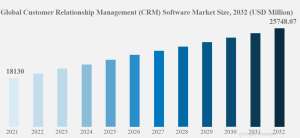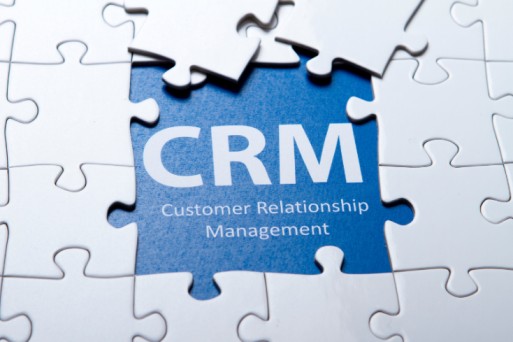There is a bright future for CRM. Although top experts predict CRM developing to measure and guide sales enablement and customer interaction while playing a significant part in the success of future business, CRM will continue to report important data and provide insight for future action. According to projections, the worldwide customer relationship management market will expand at a compound annual growth rate (CAGR) of 13.5% from its 2021 valuation of USD 76.55 billion. The market demand is anticipated to rise as a result of the integration of artificial intelligence and the growing need for consumer interaction.
What is the importance of CRM?
CRM software is an integrated suite of cloud-based apps that gathers and maintains customer data. Examples of these applications are marketing, sales, and service clouds. In order to improve customer experience (CX), it gives sales teams a single platform to prioritize tasks and handle customer contacts. This way, no customer feels overlooked. CRM software is a crucial tool for sales representatives to have in their toolbox. It goes beyond just a contact database. A CRM that is fully utilized enables sales representatives to interact with clients and potential clients more frequently. More sales are closed and more devoted consumers are retained when more time is spent with them.
Why Choose CRM?
Managing important client interactions, such as marketing initiatives across the buyer’s journey, closing sales, and carrying out follow-up tasks that foster customer loyalty, is made feasible with an effective customer relationship management (CRM) system. Generally speaking, CRM software aids in the structured management of these client interactions. Also, it offers a central location for tracking interactions with prospects and customers, which are crucial for managing a firm. A positive experience will influence prospects to choose to do business with you, and satisfied clients will recommend you to others. Good experiences can be promoted by using CRM solutions. Certain CRM programs can also be used with suppliers, partners, or other business associates. A firm is well-positioned for success when it has established procedures for managing connections and communicating with them.
Career Growth of CRM
 The global customer relationship management market is expected to increase at a Compound Annual Growth Rate (CAGR) of 12.5% over the forecast period, from US$63.91 billion in 2022 to US$145.79 billion by 2029, according to Fortune Business Insights. An expert in customer relationship management (CRM) oversees an organization’s technology to enhance marketing. It is their duty to optimize the CRM data and software’s effectiveness in order to raise client satisfaction. They serve as the go-between for the CRM software and the staff. Customer service, sales, and brand perception are all impacted by the work of a CRM professional. CRM professionals need to be excellent communicators, organizers, and collaborators in order to come up with strategies for marketing sophisticated CRM software systems to both present and new clients.
The global customer relationship management market is expected to increase at a Compound Annual Growth Rate (CAGR) of 12.5% over the forecast period, from US$63.91 billion in 2022 to US$145.79 billion by 2029, according to Fortune Business Insights. An expert in customer relationship management (CRM) oversees an organization’s technology to enhance marketing. It is their duty to optimize the CRM data and software’s effectiveness in order to raise client satisfaction. They serve as the go-between for the CRM software and the staff. Customer service, sales, and brand perception are all impacted by the work of a CRM professional. CRM professionals need to be excellent communicators, organizers, and collaborators in order to come up with strategies for marketing sophisticated CRM software systems to both present and new clients.
CURRICULUM
Introduction to CRM
- CRM Fundamentals
- History and Evolution of CRM
- Types of CRM
- CRM Technologies
- Benefits of CRM
CRM System Implementation
- Requirements Analysis
- CRM Selection Process
- Data Migration and Integration
- Customization and Configuration
- User Training and Adoption
CRM Functionality and Features
- Customer Data Management
- Sales Force Automation (SFA)
- Marketing Automation
- Customer Service and Support
- Analytics and Reporting
Advanced CRM Strategies
- Customer Segmentation
- Customer Journey Mapping
- Personalization and Customer Engagement
- Loyalty Programs and Retention Strategies
- Future Trends in CRM







